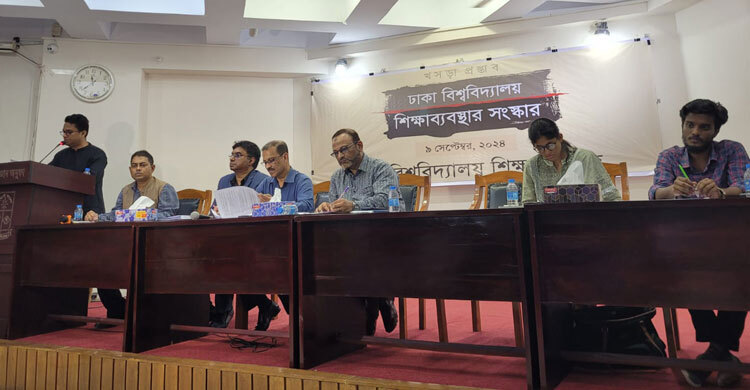What the univ teachers want in education reform

The 'Dhaka University Teachers Society,' a non-partisan group that emerged from the July uprising, has presented several proposals aimed at reforming the university’s education system.
Led by Professor Robaet Ferdous and supported by academics from various departments, the society advocates creating a non-discriminatory, harassment-free environment.
Their suggestions include forming an “Anti-Oppression Cell,” revising the hierarchical structure of departments, and introducing stricter rules to address workplace harassment.
They also propose reforms to admission processes, including a faculty-wise cluster system and an online option to reduce student inconvenience.
The group also calls for aligning university curricula with the labor market’s needs, limiting student intake in non-market-aligned programs, and introducing new skill-based courses.
For postgraduate studies, the society recommends the introduction of a full-time PhD program with competitive stipends and attaching prominent professors as supervisors.
Additionally, reforms for residential halls, including seat allocation based on merit and socio-economic needs, and better food management, were highlighted.
In terms of student politics, they advocate for a halt to partisan politics while ensuring students’ right to organize, urging regular elections for the Central and Hall-wise Student Councils.
Teacher-related reforms include relaxing the CGPA requirement for hiring, ensuring accountability through student-teacher evaluations, and streamlining promotions. The society also calls for increased government funding for research and stronger collaborations with industries and ministries.
Further recommendations touch on infrastructure development, transparency in research funding, and improved campus facilities, such as bicycle lanes and better internet access.
Additionally, the group suggests that Vice-Chancellors and other senior leaders be selected based on merit and leadership qualities, with decentralization of power within university governance.

